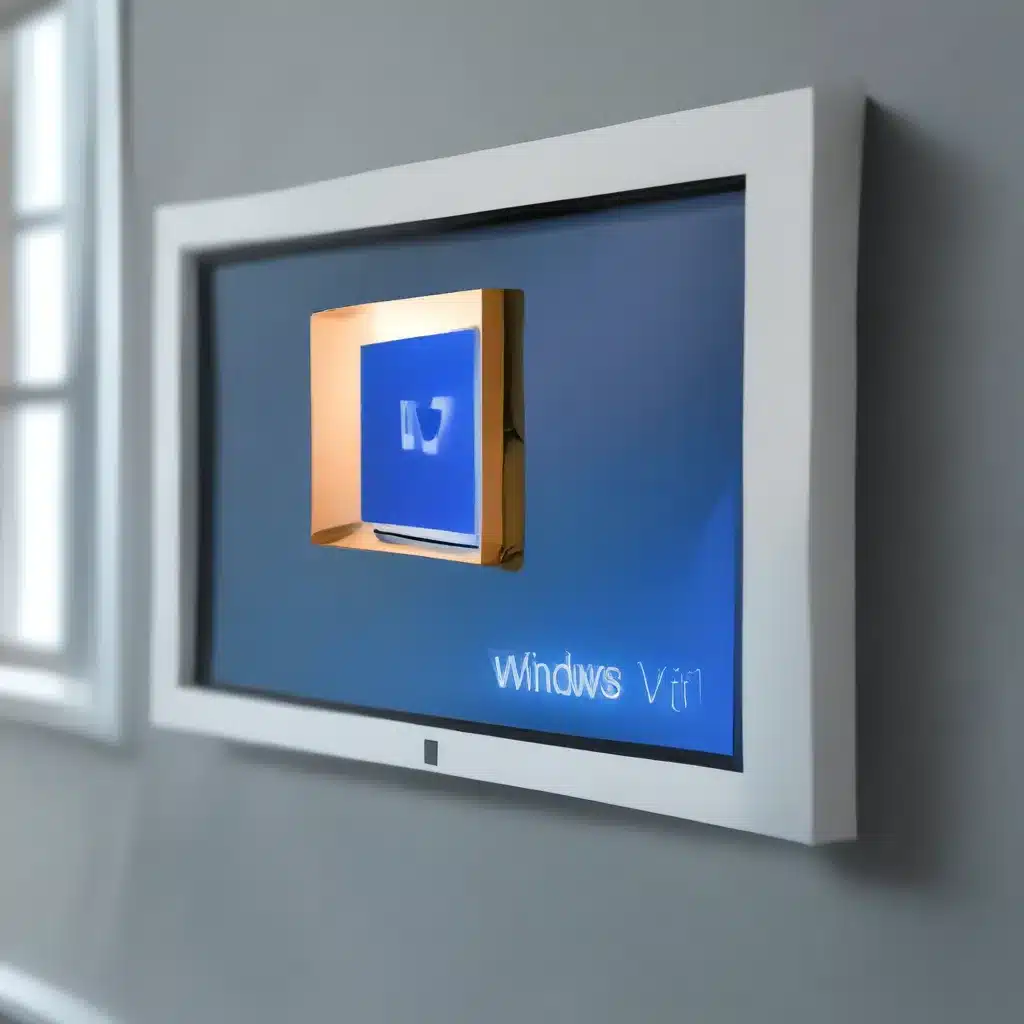
Chip to Cloud Protection: Microsoft’s Radical Approach to Cybersecurity
It’s no secret that the cybersecurity landscape is a treacherous minefield these days. Malware, phishing attacks, and data breaches are the new normal, with hackers constantly upping their game to infiltrate our systems. As someone who’s spent far too much time troubleshooting client computers, I can tell you it’s a real headache.
But fear not, my fellow IT enthusiasts! Microsoft has answered our prayers with the latest version of their operating system, Windows 11. And let me tell you, the security features in this bad boy are nothing short of revolutionary.
Let’s start with the foundation – the hardware. Microsoft has teamed up with their hardware partners to create a new class of devices called Secured-core PCs. These machines come with additional safeguards, like advanced firmware protection, that make them 60% more resilient to malware attacks than your average PC. According to Microsoft, these devices are the new security baseline for Windows 11.
But hardware is just the beginning. Microsoft has also built in some seriously impressive software-based security features. One of the standouts is Virtualization-Based Security (VBS), which creates an isolated memory region to host security solutions. This separation makes it much harder for malicious actors to target and compromise those critical security tools.
Protecting the Crown Jewel: Hardening the Windows Kernel
Now, I know what you’re thinking – “But what about the kernel? Isn’t that the holy grail for hackers?” Well, Microsoft has got that covered too. They’ve implemented Hypervisor-Protected Code Integrity (HVCI), a VBS feature that prevents the Windows kernel from being compromised.
Imagine the kernel as the brain of the operating system. If a hacker can get their grubby hands on that, it’s game over. But with HVCI, they’d have a much harder time injecting malicious code and taking control. It’s like putting the crown jewels in a high-security vault – good luck getting past those defenses!
And it gets even better. In the latest 22H2 update, Microsoft has introduced Kernel Mode Hardware-Enforced Stack Protection. This feature goes even further to safeguard the kernel from attacks, making it exponentially more difficult for malware to wreak havoc on your system. But as with any security enhancement, there’s a tradeoff – it may impact performance, especially for gamers. IT admins will need to weigh the pros and cons for their specific use cases.
Keeping Phishing at Bay: Windows 11’s Aggressive Stance
Now, let’s talk about one of the biggest security threats we face today – phishing. Hackers are getting increasingly sophisticated, and their ability to trick users into handing over login credentials is downright terrifying. But Microsoft is taking an aggressive stance with Windows 11.
One of the new features is Smart App Control, which uses AI-powered intelligence to predict whether an app is safe or not. This feature is designed to help prevent scripting attacks and protect users from running untrusted or unsigned applications, often associated with malware or attack tools. It’s like having a cybersecurity ninja watching your back, ready to jump in and stop any shady activity.
But that’s not all. Windows 11 also comes with enhanced brute-force attack protection, which locks the system after a certain number of failed password attempts. This is a game-changer, especially for remote desktop protocol (RDP) and other remote access scenarios. And for local admin accounts, Microsoft is enforcing complex password requirements to make them less appealing targets.
Embracing a Passwordless Future
Speaking of passwords, Microsoft is making a big push towards a passwordless future with Windows 11. The operating system’s Windows Hello feature, which allows for authentication using biometrics like facial recognition or fingerprints, is a huge step in the right direction.
And the good news doesn’t stop there. Windows 11 is also getting ready to join Apple and Google in implementing passkeys, a more secure alternative to traditional passwords. This move towards passwordless authentication is a crucial part of Microsoft’s efforts to combat the ever-evolving threat landscape.
Of course, no security solution is perfect, and even with all these impressive features, users and IT admins will still need to stay vigilant. But with Windows 11, Microsoft is clearly taking a proactive approach to securing their operating system, and that’s music to the ears of anyone who’s ever had to deal with the aftermath of a successful cyber attack.
So, if you’re running an IT repair service in the UK, I highly recommend keeping a close eye on the security enhancements in Windows 11. It could make your job a whole lot easier – and a whole lot less stressful – in the long run.












